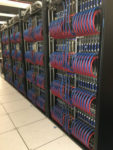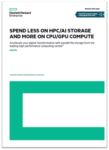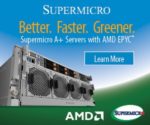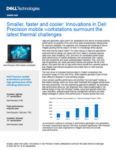If you’ve wondered why GPUs are faster than CPUs, in part it’s because GPUs are asked to do less – or, to be more precise, to be less precise. Next question: So if GPUs are faster than CPUs, why aren’t GPUs the mainstream, baseline processor used in HPC server clusters? Again, in part it gets […]
Double-precision CPUs vs. Single-precision GPUs; HPL vs. HPL-AI HPC Benchmarks; Traditional vs. AI Supercomputers
Radio Free HPC: Milan, Milan, Milan – and… How Will Intel Respond?
In this special episode, we break down AMD’s new EPYC 7003 series processor. We talk some speeds, plenty of feeds, look at their security defense, and talk about some world records. All in all, it’s an action-packed and fun episode, suitable for the entire family. In fact, we recommend you gather your family round to listen to this one as we’ll be talking about how the implications of this new CPU. Will it bring AMD back to their Opteron and dual-core glory days? Will it, as Opteron and dual-core did, prompt Intel into mounting a furious comeback? And how about the other chips on the horizon?
Microchip Technology Inc.: Introducing First PCI Express 5.0 Switches
Chandler, Ariz., February 2, 2021 – Microchip Technology Inc. (Nasdaq: MCHP) today announced what it said are the first PCI Express (PCIe) 5.0 switch solutions — the Switchtec PFX PCIe 5.0 family — “doubling the interconnect performance for dense compute, high speed networking and NVM Express (NVMe) storage,” according to the company. Together with the […]












